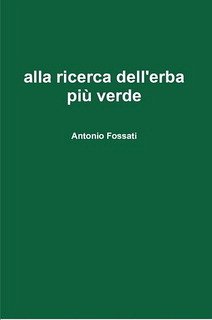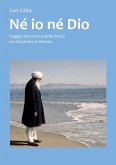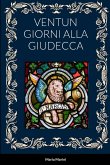This book is for two types of people. First, it's for all those who are interested in today's energy issues. Second, for those who consider investing in the energy industry. The author, an independent thinker and experienced international investor, explains in a clear, concise way the role of the different energy sources in the developed societies - and why an Energy Revolution is inevitable. The book presents different alternatives for the challenges ahead and assesses their long-term viability with full pragmatism. The author provides a unique investment approach, and shows with the aid of many real-life examples how to use it for making important investment decisions with confidence. You will also learn how to invest successfully during recessions and find recession-proof energy stocks. Whether you are a new, or an experienced investor - or just curious about oil and energy - you will learn a great deal from this book.
Capitalismo, proprietà privata, libero mercato, erano termini esecrabili negli anni '70, connessi meccanicamente a iniquità, sfruttamento. Paolo, inserito nell'attività artigianale del padre, ebbe modo di sperimentare il processo produttivo, le implicazioni, le problematiche dell'impresa. Si propose di conoscere la composizione dello stato, la struttura della nazione, gli intrecci socio economici tra persone, categorie, enti pubblici, istituzioni elettive centrali e periferiche. Operò come funzionario in un ente parastatale, insegnante in scuole professionali e istituti statali. Venne a conoscenza di situazioni differenti dal settore privato; intese sperimentare altri sistemi economici, forme, strutture produttive. Prese parte alla vita di un kibbutz in Israele; si recò in Brasile per collaborare alle opere di una comunità per ragazze madri e bambini abbandonati. Partecipò, in Nicaragua, a iniziative per sostenere il nuovo governo insediato dal Fronte Nazionale Sandinista.
Hinweis: Dieser Artikel kann nur an eine deutsche Lieferadresse ausgeliefert werden.
Capitalismo, proprietà privata, libero mercato, erano termini esecrabili negli anni '70, connessi meccanicamente a iniquità, sfruttamento. Paolo, inserito nell'attività artigianale del padre, ebbe modo di sperimentare il processo produttivo, le implicazioni, le problematiche dell'impresa. Si propose di conoscere la composizione dello stato, la struttura della nazione, gli intrecci socio economici tra persone, categorie, enti pubblici, istituzioni elettive centrali e periferiche. Operò come funzionario in un ente parastatale, insegnante in scuole professionali e istituti statali. Venne a conoscenza di situazioni differenti dal settore privato; intese sperimentare altri sistemi economici, forme, strutture produttive. Prese parte alla vita di un kibbutz in Israele; si recò in Brasile per collaborare alle opere di una comunità per ragazze madri e bambini abbandonati. Partecipò, in Nicaragua, a iniziative per sostenere il nuovo governo insediato dal Fronte Nazionale Sandinista.
Hinweis: Dieser Artikel kann nur an eine deutsche Lieferadresse ausgeliefert werden.








